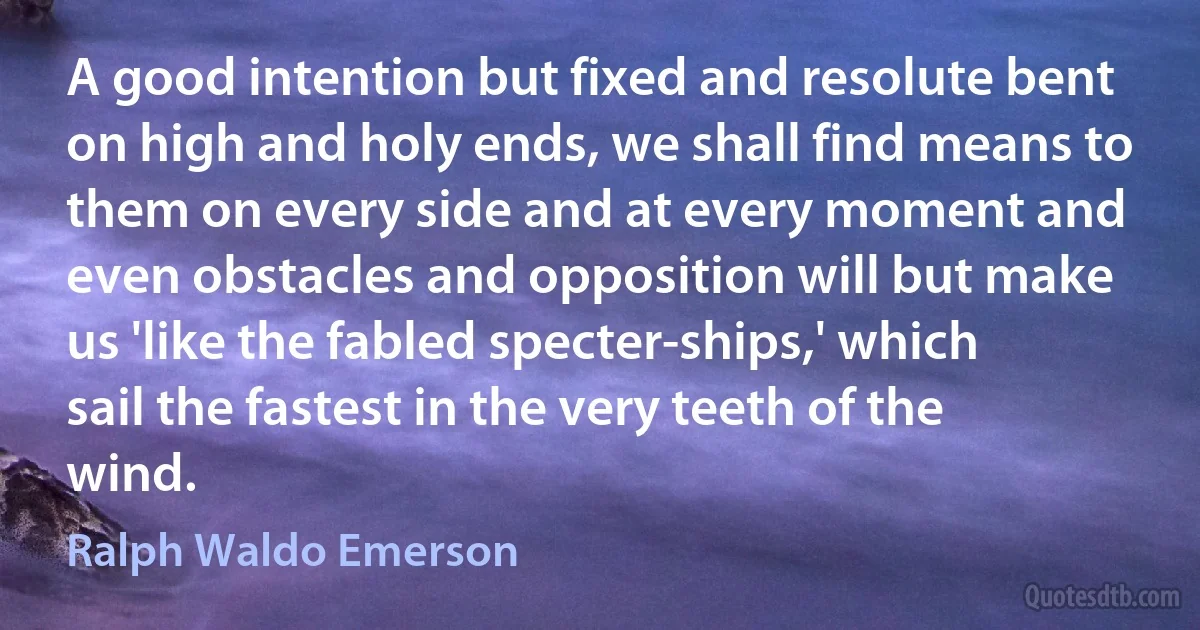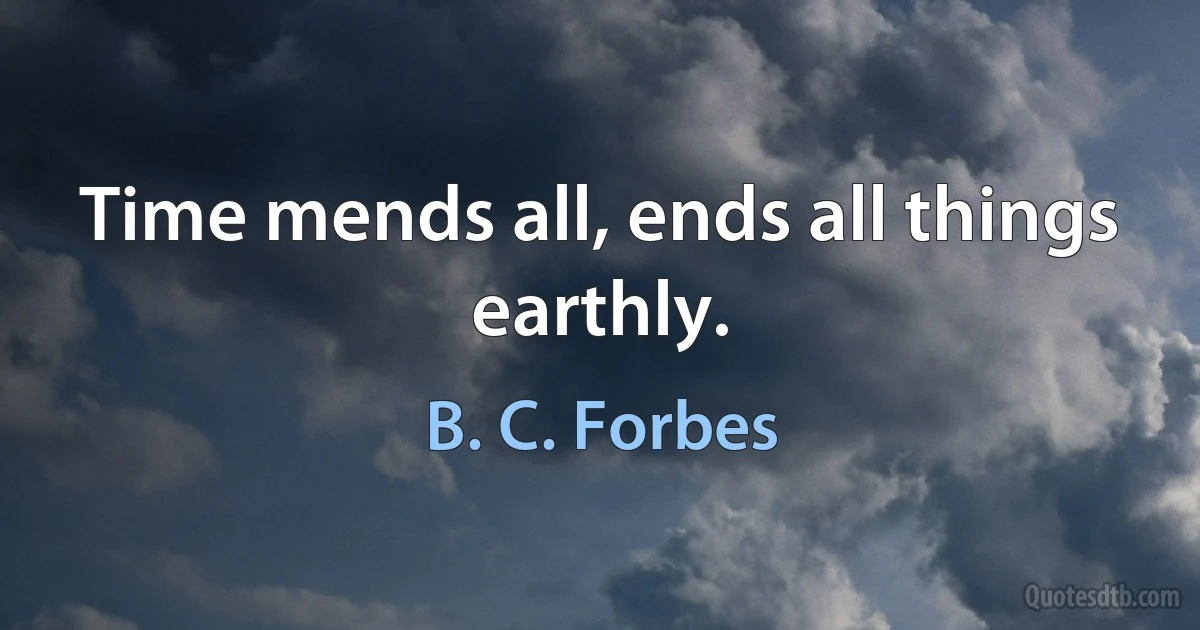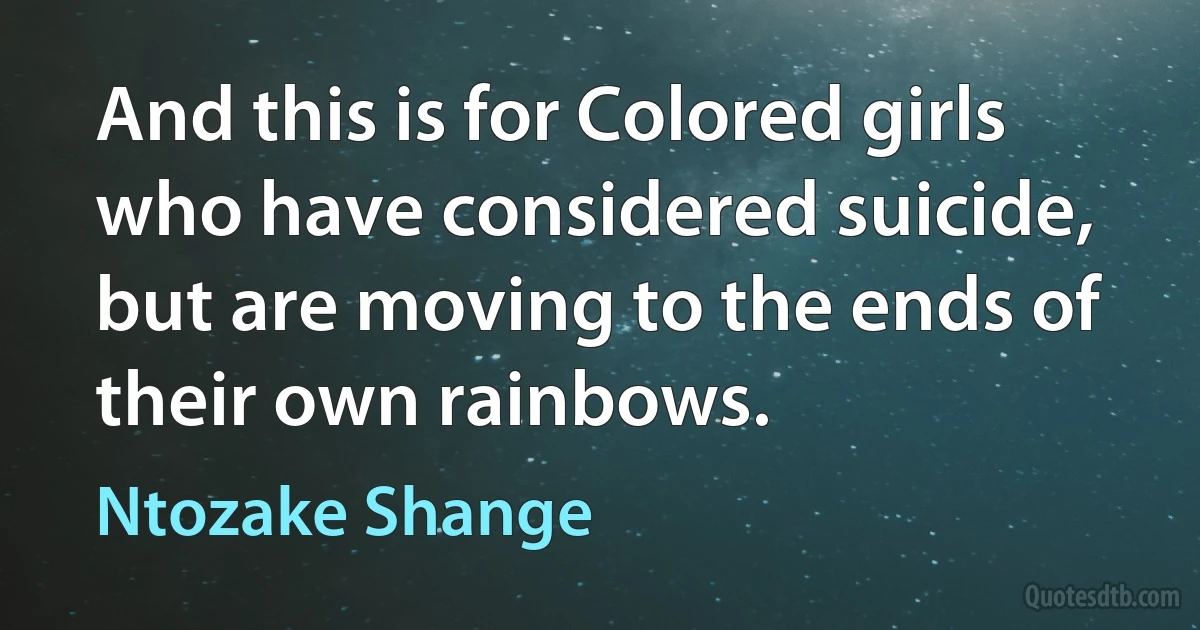Ends Quotes - page 56
Passion begins where your bodies unite and ends where your souls dance. When your spirits can join together at the same time as your bodies become one, then all of you will be making love. There will be nothing left between you that is not love. This is sacred communion. This is ecstasy.

Barbara De Angelis
Regarding the doll in the Purge, since it's one of my favorite moments in the series: The Custodians are the physical embodiment of a very vaporous notion -- human conscience. Does conscience really exist, or is it just a way of convincing ourselves that a center for moral judgment resides within us, thus lending our judgments a natural authority? As always, Trevor prefers to provide a tangible solution. He can't tolerate uncertainty. Whether it is real or not, Trevor understands the usefulness of the belief in conscience as a tool for practical ends, the improvement of society. In the end, the doll which emerges from the Custodian reveals to us that Trevor's artificial conscience, like the classical notion, is no more than a flimsy gimmick, a parlor trick, a plaything of the mind powered by a circular process. (Advocating the existence of conscience usually involves an appeal to our conscience). Notice that Trevor himself winds up the toy while in the train earlier in the episode.

Peter Chung
For in world- and life-affirmation and in ethics I carry out the will of the universal will-to-live which reveals itself in me. I live my life in God, in the mysterious divine personality which I do not know as such in the world, but only experience as mysterious Will within myself.
Rational thinking which is free from assumptions ends therefore in mysticism.

Albert Schweitzer
We need only look at the much lower level of anti-Americanism in Vietnam to realize that suffering incurred in wars does not necessarily dictate decades of animosity and fear between peoples. It's what propaganda does with history - for contemporary political ends - that counts.

Brian Reynolds Myers
Not egoists but strangers, sometimes benevolent, make for citizens of the deontological republic; justice finds its occasion because we cannot know each other, or our ends, well enough to govern by the common good alone. This condition is not likely to fade altogether, and so long as it does not, justice will be necessary. But neither is it guaranteed always to predominate, and in so far as it does not, community will be possible, and an unsettling presence for justice.

Michael J. Sandel
This liberalism says, in other words, that what makes the just society just is not the telos or purpose or end at which it aims, but precisely its refusal to choose in advance among competing purposes and ends. In its constitution and its laws, the just society seeks to provide a framework within which its citizens can pursue their own values and ends, consistent with a similar liberty for others.

Michael J. Sandel
The advent of the new political economy marked a decisive moment in the demise of the republican strand of American politics and the rise of contemporary liberalism. According to this liberalism, government should be neutral as to conceptions of the good life, in order to respect persons as free and independent selves, capable of choosing their own ends. Keynesian fiscal policy both reflected this liberalism and deepened its hold on American public life. Although those who practiced Keynesian economics did not defend it in precisely these terms, the new political economy displayed two features of the liberalism that defines the procedural republic.

Michael J. Sandel
Where the self is conceived as prior to its ends, independent of the roles it may occupy at any given time, reputation cannot be a matter of honor in the traditional sense. For the unencumbered self, not honor but dignity is the basis of respect―the dignity that consists in the capacity of persons as autonomous agents to choose their ends for themselves. Unlike honor, which ties respect for persons to the roles they inhabit, dignity resides in a self antecedent to social institutions, and so is invulnerable to injury by insult alone. For selves such as these, reputation matters, not intrinsically, as a matter of honor, but only instrumentally, as a business asset for example.

Michael J. Sandel
The poet, says Baudelaire, is a decipherer, a Kabbalist of reality, a decoder. Ordinary life, if it is not a message in code, a system of symbols for something else, is unacceptable. It must be a cryptogram; it can't be what it seems. The poet's task is to decode the incomprehensible obvious. His life becomes a deliberately constructed paranoia, as Rimbaud, Breton, Artaud were to say generations later.
As we read him, we discover that Baudelaire believes in the charm, the incantation, the cryptogram, but he ceases to believe in the secret. The spirits have not risen. The code says nothing. This is the mystery concealed by the disorder of the world. The visionary experience ends in itself; the light of the illuminated comes only from and falls only on himself.

Kenneth Rexroth



